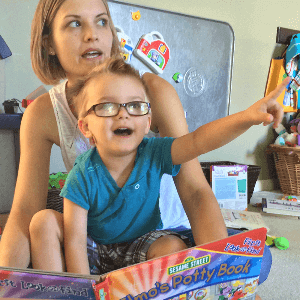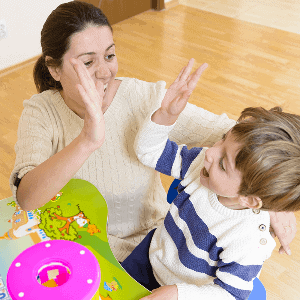Many kids with severe autism have extreme difficulties. Both parents and professionals struggle with how to help kids with severe autism. Today I’m going to answer the question “what is severe autism?” and talk about three reasons why helping kids with severe autism is harder than ever.
Each week I provide you with some of my ideas about turning autism around, so if you haven’t subscribed to my YouTube channel, you can do that now and join the thousands who already have. Lucas, my son, has severe autism. Here are the three reasons why helping kids on the severe end of the spectrum appears to be harder than ever.
What is severe autism?
Unfortunately, there is no standard definition for the diagnosis of autism spectrum. The research I’ve done involves a couple of key points to categorize someone as on the severe end of the spectrum. Their communication and social skills are usually very impaired, so either not speaking at all, or minimally verbal. Not conversational and not able to fully express their wants and needs. Their IQ score, if that’s been done, is usually lower than 70, which indicates what we used to call mental retardation, and now we call intellectual disability.
Kids with severe autism have an inability to be independent with safety, staying alone in the house or out in the community, and taking care of all their physical needs like toileting, showering, and dressing. They would need some kind of supervision or assistance in those areas usually because of their ability or inability to communicate fully.
A lot of times kids with severe autism also have problem behaviors and sometimes major problem behaviors including repetitive behaviors, aggression, self-injurious behavior, and property destruction. All of these things rolled into one presents really big challenges, especially as the child grows older.
Lucas could not stay at home alone because, while we could teach him to call 911, he didn’t and still doesn’t have the decision-making ability or the cognitive ability to understand what strangers are and what to do in that situation. We would be unable to teach him that. The fact that he is unable to be safely alone or safely out in the community is an indication of severe autism.
Attend a FREE Workshop!
Severe autism and developmental expectations
The first reason why I think it’s harder than ever to help children with severe autism is because I think as kids grow up, there are expectations. They shouldn’t need babysitters, daycare, or help with showering and toileting. If they have severe autism when they’re two, it’s different than having severe autism when they’re 12. Expectations for kids continue to get harder and harder.
It’s also harder to get care. Kids with severe autism are going to continue to need some kind of supervision and care. It’s really hard to get babysitters if you have problem behaviors, toileting issues, or an inability to speak or shower independently. Some summer programs and camps are not able to accommodate kids if there’s any kind of major problem behaviors. Most mainstream settings are not going to be able to accommodate. So when they do continue to need help, it takes a toll on parents. It takes a financial toll and usually an emotional toll. It can cause marital strain and all sorts of other things. So as the child ages, if they don’t get milder with their autism, it does usually cause issues.
Skewed perceptions and autism in the media
The second reason why I think it’s harder than ever is because there is a lack of research on kids on the severe end of the spectrum. Their services, their rights, and their funding are what is impacted. The funding streams and the services are based on research on higher functioning individuals and so that’s an issue.
And the third reason is that media outlets tend to cover people with high functioning autism. They want positive stories. They want kids that are going to college. The Good Doctor is a show right now that represents a very small fraction of the people on the spectrum. Because of this, it skews the general perception of autism.
People with high functioning autism are self-advocates. They are out there lobbying and saying that kids shouldn’t be in group homes or kids shouldn’t be in sheltered workshops. Or adults with severe autism shouldn’t have guardianship over them. There’s no way my son could possibly be independent enough to not need a guardian. He can’t even cross the street by himself. Let alone stay alone, manage his affairs, or any kind of medical decisions. So of course he would need a guardian. But there’s this disparity between the two ends of the spectrum. There are reasons why kids with severe autism do not have enough advocacy for them.
Amy Lutz is a mom to a young adult with severe autism and an author going for her Ph.D. at Penn. She was recently interviewed on my podcast on episode 20. She is one of the board members of a new organization called the National Council for Severe Autism. They are lobbying for better treatment, services, research, and media coverage on our needs as parents of adults and kids with severe autism. So that we can really advocate for them better. If you’d like to listen to that podcast about severe autism, I would encourage you to do that at marybarbera.com/20.
I’d also encourage you to check out the National Council for Severe Autism. Join their mailing list and start reading about the challenges associated with severe autism. If you’re still questioning what severe autism is or if you just want more information, my online course and community can help. For more information about my online course and community, I would love it if you would attend a free online autism workshop, and I’ll see you right here next week.
Attend a FREE Workshop!






